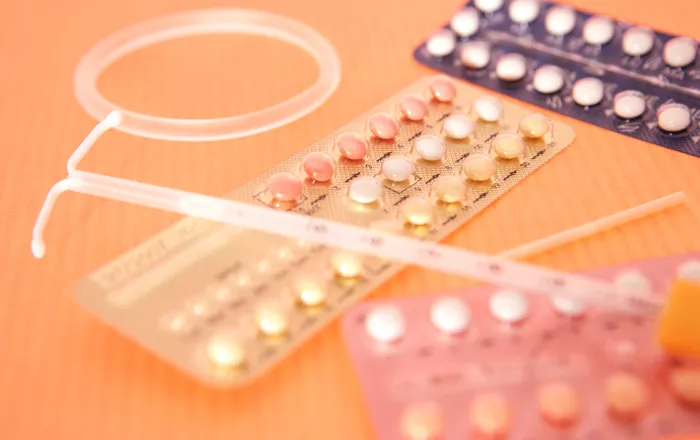Menopause is a natural part of aging for women, but it can come with a range of uncomfortable symptoms. Some women may turn to birth control methods to help manage these symptoms. In this article, we’ll explore whether birth control can be an effective option for easing menopause-related discomforts.
Understanding Menopause
Menopause is a phase in a woman’s life when her menstrual cycle stops permanently, marking the end of her reproductive years. It typically occurs around the age of 50 but can vary for each woman. Menopause is defined as having no periods for 12 consecutive months. It is often accompanied by a variety of physical and emotional symptoms.
Common Menopause Symptoms
Menopause symptoms can vary widely but commonly include:
- Hot flashes
- Night sweats
- Irregular periods
- Vaginal dryness
- Sleep disturbances
- Mood changes, including irritability and anxiety
How Birth Control Works
Birth control methods, such as hormonal contraceptives, work by altering the levels of hormones in the body. These methods prevent pregnancy by regulating ovulation and thickening cervical mucus. Some forms of birth control also help manage the symptoms of menopause by balancing hormone levels.
Can Birth Control Help With Menopause Symptoms?
Many women consider using hormonal birth control during perimenopause, the period leading up to menopause. Hormonal birth control can help manage symptoms like irregular periods, hot flashes, and mood swings. The two main types of hormonal birth control are:
- Combination Pills: These contain both estrogen and progestin and are commonly used to regulate periods and ease menopause symptoms.
- Progestin-Only Pills: These may be recommended for women who cannot take estrogen due to health concerns.
Benefits of Birth Control for Menopause Symptoms
Using birth control during perimenopause may offer several benefits:
- Regulating Menstrual Cycles: Hormonal birth control can make periods more regular, helping women who experience unpredictable cycles during perimenopause.
- Reducing Hot Flashes and Night Sweats: Hormonal contraceptives can help reduce the intensity and frequency of hot flashes and night sweats.
- Relieving Mood Swings: Birth control pills that contain estrogen can help stabilize mood swings that are often linked to menopause.
Limitations and Considerations
While birth control can help alleviate some menopause symptoms, it’s not suitable for everyone. Women with certain health conditions, such as a history of blood clots or breast cancer, may be advised against using hormonal contraceptives. It’s important to consult a doctor before starting any birth control method, especially during menopause.
Alternative Treatments for Menopause Symptoms
For women who cannot use birth control or prefer other options, there are several alternatives available to manage menopause symptoms:
- Hormone Replacement Therapy (HRT): This treatment involves taking estrogen or a combination of estrogen and progesterone to alleviate symptoms.
- Herbal Remedies: Some women use herbs like black cohosh or evening primrose oil to manage hot flashes and mood swings.
- Lifestyle Changes: Regular exercise, a healthy diet, and stress reduction techniques can help manage symptoms naturally.
When to Seek Medical Advice
If menopause symptoms are severe or disruptive to daily life, it’s important to consult a healthcare provider. They can help determine the most appropriate treatment, whether that includes birth control, HRT, or other options.
FAQs About Bipolar Disorder
1. What is bipolar disorder?
Bipolar disorder is a mental health condition that causes extreme mood swings, including periods of intense high energy (mania or hypomania) and deep depression. These mood changes can affect a person’s ability to function in daily life.
2. What are the symptoms of bipolar disorder?
Common symptoms of bipolar disorder include mood swings, extreme irritability, impulsive behavior, changes in sleep patterns, and feelings of hopelessness or excessive euphoria. These symptoms can vary depending on the phase of the condition.
3. Can bipolar disorder be treated?
Yes, bipolar disorder can be managed with a combination of medication, therapy, and lifestyle adjustments. Medications like mood stabilizers, antipsychotics, and antidepressants are commonly used to help stabilize mood swings. Therapy can also help individuals develop coping strategies.
Conclusion
Birth control can help manage certain menopause symptoms, but it’s not the right choice for everyone. Women experiencing menopause should speak with their healthcare provider to explore the best options for symptom relief.
Related topics:
- Does Birth Control Help With Vaginal Dryness?
- Does Birth Control Pills Help with Menopause?
- Top 5 Multivitamins For Women On Birth Control


